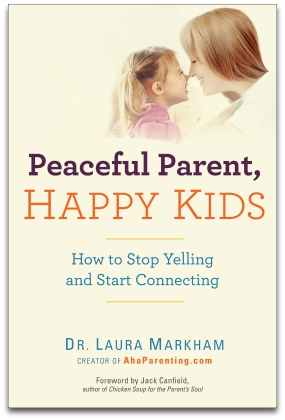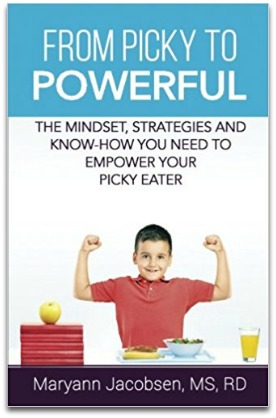 A few years ago, my family and I were preparing for a big event honoring my oldest son.
A few years ago, my family and I were preparing for a big event honoring my oldest son.
I had carefully created invitations, prepared a program, and cooked a celebration meal. I took the time to buy a new outfit, including shiny new shoes for my son to wear. It was poised to be a wonderful day with our family and closest friends.
And then it was time to get dressed.
My son flatly refused to wear the shoes I picked out for him.
I first tried to bargain with him; “you only have to wear them for one hour and then you can come home and change.” That was met with a flat, “No.”
Then I tried to bribe, “If you wear these shoes, then you can have treat.” That didn’t work either.
I tried pleading, “Please, wear these shoes. Please just wear them. For me… please, please.”
When that fell flat, I played my final card. It was time for a mommy tantrum.
For those of you unfamiliar with a mommy tantrum, it usually occurs when said mommy does not get her way. Her unyielding child ignites a fuse in a firecracker of negative emotion.
Mid-mommy tantrum, I was fuming down the hall when my husband caught me and said, “Don’t let a pair of shoes ruin this day for you.”
Suddenly, my fuse went out. He was right. I was letting a pair of shoes that would look nice in a picture become more important than my child’s big day.
While reading this, memories of similar power struggles you have had with your children may have come flooding back. We have all been in this position. But one powerful truth will help reduce the stress that comes from power struggles.
It is this: not all parenting battles are worth fighting.
There are occasions when we should let children have their way.
The idea that we should give in and let our child have his or her way doesn’t sit well with some parents. Some of us may have been raised by parents who believed that kids should do what their parents say – no matter what.
Did you ever hear, “Because I say so, that’s why!!” or “Do what I tell you, or else!!” at some point in your childhood? Intimidation was the tool of choice used in those days to create compliant children.
This may have worked then, and probably still does in some households, but at what cost? Fear-based parenting is one way to get children to cooperate, but there are other tools that are far more effective in the long run.
If you want to raise strong children who are able to make decisions, they need to be able to practice actually making those decisions. Allowing children to make decisions about things that don’t really matter in the grand scheme of things will give them confidence, build your relationship and ultimately, lead to more cooperation at home.
It is up to you as a parent to determine what you will let your child choose and what you will not. I am not suggesting we all become permissive or passive parents. Positive parenting is NOT permissive parenting!
But, as parents, we need to make intentional decisions about what we will and will not control in our children’s lives.
 Dr. Laura Markham, author of Peaceful Parent, Happy Kids, has said:
Dr. Laura Markham, author of Peaceful Parent, Happy Kids, has said:
“Kids who have to fight to assert their individuality and independence keep fighting later in life, even when it’s not appropriate. Kids who are allowed to make appropriate decisions early in life — “Do you want to wear the green shirt or the red shirt?” “Today is Saturday so you need to clean up your room. Do you want to do it before lunch or right after?” — don’t have to reflexively assert their own will, because they have been allowed to develop it throughout their childhood.”
In my home, I have made intentional decisions about which things are non-negotiable. Some of these include, respect, work, church attendance, and technology boundaries.
I have also made intentional decisions about the scenarios where I let my children make their own choices. Even if their choice is different than the suggestion I give them, I opt out of the power struggle.
The benefit for my child is a greater sense of self and independence and the benefit for me is more peace at home and less stress.
Here are the 3 most common power struggles that I have decided are optional parenting battles that I will not participate in –
When Chores or Homework are Done
We should expect our children to work. However, we shouldn’t battle over WHEN it is done. If children are allowed the freedom to complete their responsibilities when they want to complete them, within reason of course, they will be much more compliant.
Think about when you are told “Fold these towels now!” Do you want to fold the towels right now? Probably not. But if you are instead asked, “The towels need to be folded today. When can you do that?” don’t you feel much more willing to do the task? I know I do.
For younger children, giving them the freedom to choose might look as simple as asking them if they want to do their jobs before lunch or after lunch. Or you can allow children to read after school or right before bed or do homework right after school or right after dinner.
Older children can be given a list of responsibilities with the expectation that they be completed at the end of the day. They then have flexibility and freedom and just might be more compliant.
In our home, one of our sons prefers to do his “Saturday jobs” throughout the week, so he can just relax when Saturday comes around. As long as the work gets done and is done well, it works for the both of us. Whenever possible, (and I know that sometimes it is not) try to allow kids to manage the “when” after you have given them the “what.”
What Clothes They Wear
 Giving children the freedom to choose what they wear is such a great opportunity for them to make decisions and show their individuality. No, you may not like what they choose to wear, but getting into a power struggle over clothes is a battle you are sure to lose.
Giving children the freedom to choose what they wear is such a great opportunity for them to make decisions and show their individuality. No, you may not like what they choose to wear, but getting into a power struggle over clothes is a battle you are sure to lose.
This last year I sent my son to school in a carefully curated, mom-approved outfit for picture day. When I got the pictures back, he had put a sweatshirt over the shirt I chose. I was bothered, but it helped me realize that it meant a lot to him to look the way he wanted to look in his pictures.
When kids want to win the clothes battle, they will win. This also includes wearing coats or other outwear. I have found the easiest way to get my child to wear a coat when they have already refused to do so is to ask them to step out into the cold without one. Even then, they may not want to wear it. And that is OK.
As a result of giving them the freedom to choose their wardrobe most of the time, on those occasions when your child must wear a particular outfit, they may be more willing to cooperate with your request. They will have learned that you wouldn’t interfere unless it was really important.
What and How Much They Eat
Oh, the dreaded dinner showdown. Coming from someone who has literally chased her children around with broccoli, I can tell you that getting them to eat something they aren’t interested in is a battle not worth fighting.
 We all know, trying to control what kids eat comes from a place of love. We want our kids to develop healthy eating habits. But forcing children to eat can have negative long term consequences. Maryanne Jacobson, author of the book, From Picky to Powerful noted that, “Forcing and pressuring causes kids to eat less and dislike certain foods.”
We all know, trying to control what kids eat comes from a place of love. We want our kids to develop healthy eating habits. But forcing children to eat can have negative long term consequences. Maryanne Jacobson, author of the book, From Picky to Powerful noted that, “Forcing and pressuring causes kids to eat less and dislike certain foods.”
So what is the alternative? Your job is to offer a variety of healthy foods and model healthy eating habits. This is not saying you should let your children eat dessert for dinner or be a short order cook and make a different meal to satisfy everyone! Rather; decide what you will do if your child does not eat what you prepare (peanut butter and jelly or leftovers from the night before are good options) and avoid the battle.
When I am feeling defeated, I often consider these wise words shared by religious leader, Thomas S. Monson –
“Don’t ever let a problem to be solved become more important than a person to be loved.”
When power struggles occur, as they often do, remember that you will gain more cooperation when your child feels loved, respected and understood.
2-Minute Action Plan for Fine Parents
Take a quick minute after your kids are in bed to sort out the power struggles you face. Use the following to help guide your thoughts:
- Make a list of common power struggles that occur in your home.
- Circle the power struggles that, in hindsight, are optional.
- Underline the power struggles that are attached to non-negotiable values.
Ongoing Action Plan for Fine Parents
Using the list of common power struggles, take a look at the optional power struggles and make an action plan for each category.
What will you do when your child refuses to eat her dinner? How can you handle the situation without forcing them to comply?
Consider what is important to you about your child’s appearance. Are there certain standards you want your child to uphold? How can they still have the freedom to choose while still dressing in an appropriate way?
Chores and homework: how much leeway are you willing to give your children to complete the work required of them? How will they be held accountable for the responsibilities they have?
Determine any other power struggles that you deem “ optional” and how you will respond.
Create a list of non-negotiables in your home and set clear boundaries and expectations for each.
Over the next few months, hold family meetings where you can share your expectations with your children. Discuss with them how to make good choices in the areas in which you are giving them space to choose.
Thank you for the article. We appreciate you sharing your ideas. I do as you do.. my child makes decisions. However. What about a non negotional like respect…or when a decision os something we both will be involved in. . My child is a great kid but gets angry and I recognize that a power struggle just escalates his anger. He always apologizes later and says he doesn’t mean what he says. Can you expound on how you handle this.? Thank you so much. I really need some guidance.
I am trying my best to find a free site so I can blog for a living. I see so many people do it, but I don’t see how they start up. How and where can I start up a blog site? Especially if I don’t have to pay to have the site. I am a stay at home mom. There is nothing I want to do more than be a stay at home mom. A job that I would do at
weight machine would be outstandingly perfect.
I love your articles Very Help Full Thanx for Geving Me This Article
I love your articles. you put enough research and thought process into bringing this to us. I have been silently reading your blog since a long time. and also special mention for the free mini course.
Thank you Lisa, I love receiving these articles weekly. This one has come at the perfect time. I’m usually able to do these subconsciously, but after a few weeks of sleepless nights due to illness its had me creep back into old/haunting habits. This has been the gentle reminder to check in with myself and my thought processes and realign. Thank you!
I am trying my best to find a free site so I can blog for a living. I see so many people do it, but I don’t see how they start up. How and where can I start up a blog site? Especially if I don’t have to pay to have the site. I am a stay at home mom. There is nothing I want to do more than be a stay at home mom. A job that I would do at home would be outstandingly perfect. Money to get me by, better than the $5/hr by delivering food. Please help me find somewhere for me to blog and to get paid right when doing it.
Google “Free Blog Platforms “ and you will find them!